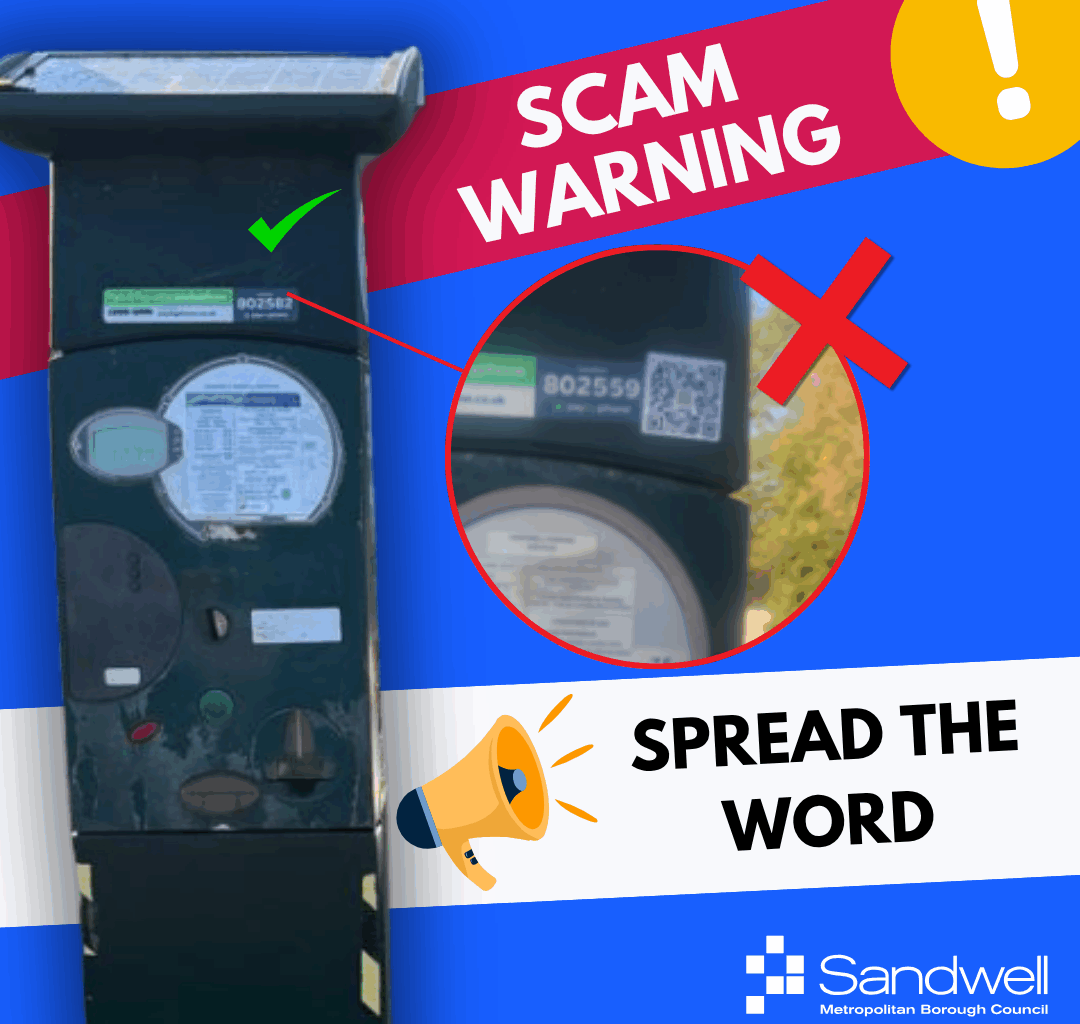Sandwell has been recognising International Fraud Awareness Week by alerting residents to some of the most common scams – so you can avoid falling victim to fraud.
Five of the most common scams have been shared with residents each day for a week.
Fraud Awareness Week is an annual campaign where organisations and communities come together to hold events to highlight the importance of fraud detection and prevention and includes sharing information on how to spot red flags and protect against scams.
It also provides a timely opportunity to remind criminals that Sandwell and our partners are using our powers against people who prey on our residents:
- We have prosecuted 20 people for fraud related activity, cancelled 26 housing applications and recovered 33 33 council houses.
- We had a particular focus on targeting people who profiteer from social housing by subletting their properties, which in itself hinders genuine applicants on the waiting list who are seeking a home.
- Since the start of this year the Council has also prevented 10 fraudulent Right to Buy applications, protecting a value of around £707,000 in discounts being incorrectly acquired.
- The Council was shortlisted in the ‘breakout award’ category at the British Parking Awards for their efforts in cracking down on Blue Badge misuse and fraud. This recognition highlights the Council’s commitment to ensuring that designated parking spaces are available for those who need them most.
Cllr Paul Moore, Deputy Leader of Sandwell and Cabinet Member for Finance said:
“Over Fraud Awareness Week Sandwell has been highlighting some of the most common scams that affect our residents. I would ask that everyone shares these with friends, family and neighbours so we can all stand together against these shameless criminals.
“It is also a good time to reflect on the work of the Council’s teams and our partners who have a very strong track record in putting a stop to these people.
“The Council has tackled over £220,000 in fraud in the financial year of 2024/2025 with an estimated further prevention of £3.15million based on Cabinet Office calculations.
“I’d like to say a big thank you to our teams who are ever vigilant and ready to prosecute anyone who tries to steal from residents or the public purse.”
More information
For more information on how to protect yourself against fraud check out the Government’s Stop! Think Fraud Campaign – https://stopthinkfraud.campaign.gov.uk/
If you believe you have been the victim of fraud it should always be reported to Action Fraud: www.actionfraud.police.uk/
More information about fraud and how to contact the Council’s Counter Fraud Unit is available on our website: www.sandwell.gov.uk/reportfraud
Sandwell Council Guide to common scams
Phone Calls and Texts
Did you know – fraudsters can make phone calls and text messages look like it is coming from a genuine phone number?
They may state they are from organisations like a bank or HMRC or indicate that you have won a prize or need to make a payment to release something you are entitled to. Often the intention is to obtain payment or personal details. You should always be aware if someone asks for:
- PIN numbers of passwords in full
- a one-time-passcode
- payment before sending a prize or for a lost delivery
- money before you have met in person or before an appointment
Other tactics include methods to try and get you to click on suspicious or unusual links or try to move you away from official payment sites and make a direct payment to the fraudster. #fraudweek
Postal Fraud
Postal fraud and door scams include items being delivered to your home which offer a guaranteed prize, ‘get rich quick’ scheme or require a payment to release an undelivered item.
It could encourage you to call a premium-rate phone number or provide personal information including bank details before you get anything.
Cold-Calling
Alternatively, a fraudster might be advertising goods or selling a service by cold calling you. They could be offering a big discount or a limited time-period due to doing other work in the area. The fraudster will rely on putting pressure on you to act quickly or pay, not allowing you time to consider other options. Do not be forced to do something quickly. If they are genuine, they should be happy come back at another time or take no for an answer.
Fake QR Codes
Be aware of fake QR codes. QR codes are used to direct your mobile phone to a website for things like car park payments or to enter competitions.
But fraudsters will tamper with legitimate QR codes by adding a fake QR code sticker over a real one. If scanned, these fakes codes will direct you to dubious websites, fake payment screens or allow malicious software to be downloaded to your phone.
To avoid fake QR codes, always take care to inspect them before scanning, check for stickers which have been added over the top – especially on parking machines, which often have fake QR codes left by scammers.
Codes which are inside restaurants and pubs may be more reliable than outside signs or parking machines. If something looks odd or out of place, then avoid it.
A request from a friend or family member for help
Are you aware of the friends or family “needs help” scam?
This fraud often relies on people’s better nature and their emotions.
Fraudsters will contact someone stating they are a friend or family member in need of help, often in the form of money.
They count on the victim reacting quickly to provide help and support.
You should always be suspicious if you are contacted by an unknown phone number, or an account on social media or through phone apps. Be aware of unusual scenarios whereby the friend or family member cannot call you to speak in person or where they are using unfamiliar language which doesn’t sound like them – it could be a scam.
